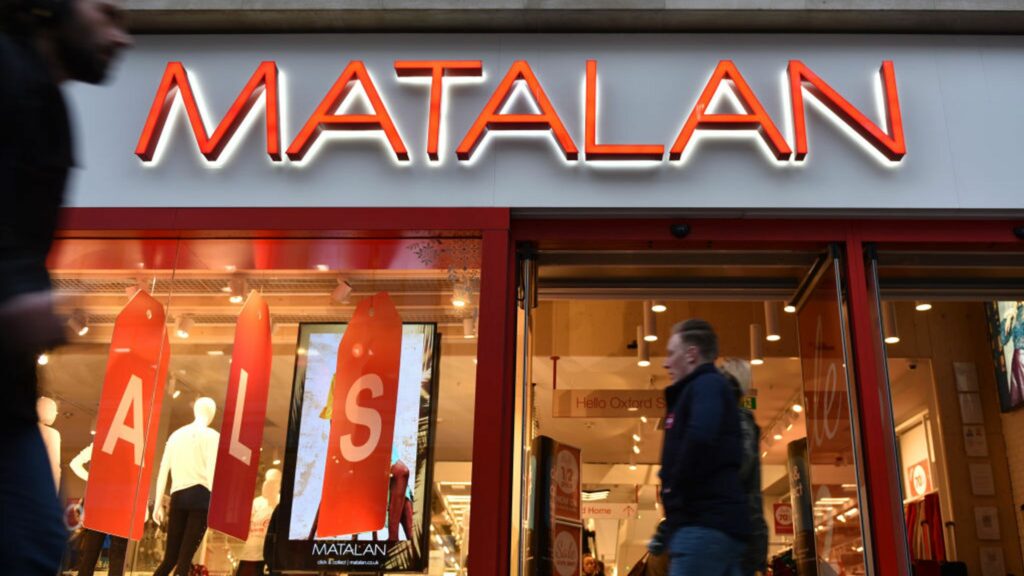The challenges plaguing the UK’s high streets outline the rise and fall of retailers, as once-popular brands and their bosses fall out of fashion.
The 2016 collapse of BHS, which resulted in the loss of 11,000 jobs and a £571 million pension deficit, came as a shock to the industry – despite the fact that a year earlier, Sir Philip Green’s retail empire Arcadia Group sold the chain to serial bankrupt Dominic Chappell for just £1.
Green’s reputation has struggled to recover since BHS’s collapse, which became a drawn-out scandal that even brought his knighthood into question. This year, he launched a CVA to restructure Arcadia, placing hundreds of jobs at risk amid proposals to close a batch of stores. This occurred several months after Lord Peter Hain named Green as the prominent City high roller that was accused of sexual harassment in an investigation by The Telegraph, which had been slapped with a legal injunction to prevent his identity from being revealed.
As one high street billionaire struggles to maintain his reputation and business, another emerges with a reputation for rescuing distraught retail chains and returning them to profitability.
Enter retail entrepreneur Philip Day, who owns more than a dozen fascias under his Edinburgh Woollen Mill Group empire, including Jaeger, Austin Reed, Peacock and the eponymous Edinburgh Woollen Mill.
He recently made a bid to takeover Bonmarche, after buying extra shares and increasing his stake in the firm to over 50 per cent. City rules stipulates that a shareholder must make a mandatory takeover offer if their stake surpasses the 30 per cent threshold.
Bonmarche initially rejected Day’s £5.7 million offer, saying that it “undervalued” the retailer – but in June, it said it had “warmed up” to it as it seemed “more attractive” after a period of poor trading in the first quarter. This prompted Day to place a July 12 deadline on his offer.
“It’s very unlikely that Bonmarche could survive for much longer without some form of rescue”
Since the takeover bid was initiated, there has been some speculation as to whether Day’s company, Spectre Holdings, has what it takes to turnaround Bonmarche as it did with the likes of Jaeger, which it acquired out of administration in 2017.
Bonmarche’s struggle to generate sales has been evident since the beginning of the year. In January, Bonmarche revealed that its shares had dropped by 40 per cent after it issued a profit warning, blaming “unprecedented” trading conditions on the UK high street and a slump in sales over the key Christmas quarter. Chief executive Helen Connolly added that the market for over-50s womenwear had shrunk during the year.
Nottingham Business School retail research associate Nelson Blackley told Retail Gazette that “it’s very unlikely that Bonmarche could survive for much longer without some form of rescue – whether from Philip Day or anyone else”.
Mylo Portas, a retail customer success manager at artificial intelligence firm Peak, said Bonmarche’s unsteady trading situation was more than just “the continued weakness in the underlying clothing market” and a “lack of seasonal weather to counteract it”.
“While the unpredictable nature of the clothing market will undoubtedly contribute somewhat to slow sales growth in retail, there’s more to Bonmarche’s situation than that,” he told Retail Gazette.
“Consumer behaviour is constantly changing through seasonal periods – from how they shop, to where, what time and why. Shopping trends are changing and we are seeing an increasing number of sales through ecommerce channels every year.”
In May, the ONS reported that online sales accounted for 19.3 per cent of all total retail spending – up 8.2 per cent on the same month a year earlier. This continuing shift to online represents an opportunity for retailers who are able to meet the changing habits of their customers.
“Consumer behaviour is constantly changing through seasonal periods – from how they shop, to where, what time and why”
Rick Smith, managing director of company rescue specialists Forbes Burton, said that if Day were to acquire Bonmarche, he may need to make smart decisions when it comes to promotions, merchandising and Bonmarche’s official website.
“Bonmarche is a trusted brand, but might need to look into ways of increasing online sales. A website overhaul or digital marketing techniques could prove useful here,” he said.
It could be argued that although Bonmarche hoped to save £6 million a year, and currently has access to £5 million of emergency cash, it may not be enough to revitalise the retailer and its estate of bricks-and-mortar stores. It may well need a rescue plan of sorts.
Blackley said: “Even their auditor PwC has warned that if trading did not improve it could go bust. So, the company has backtracked on its advice to shareholders last month that the 11.4p-a-share bid ‘materially undervalued’ now saying the terms of the offer were ‘now fair and reasonable.'”
Bonmarche is widely recognised as a retailer that caters for over-50s. Whether it differentiates it enough from competitors in the value fashion space is a question with posing, but so like many others, it has suffers from dwindling consumer confidence, the reduction in discretionary spending, and the increase in competition.
However, the truth remains that Day owns over a dozen retailers, and is recognised for his successful attempts at rescuing brands from administration.
“With his track record, Phillip Day will probably be adequately placed to be able to save Bonmarche, but it won’t be without some challenging days ahead,” Smith explained.
“As it’s on the brink of collapse, within a challenging high street climate, there are a few ways he can revitalise the chain.”
In 2012, Day acquired fashion retailer Peacocks out of administration, and had reportedly put £200 million of his own money on the line for the acquisition.
Day also bought Austin Reed from administration in 2016, and revealed his plans to open 50 new Austin Reed stores by 2018 at the time.
In 2017, Day acquired Jaeger, again from administration. He said the acquisition was part of EWM’s plan to open a new department store.
Day left his role as joint managing director at Aquascutum in 2001 to join Edinburgh Woollen Mill, a company which has over 300 stores nationwide, and it’s also the company that gave Day a head start into retail success.
The business is divided into high street, tourist and destination stores, but the products online focus primarily on the company’s high street range.
However, EWM Group posted a £2.7 million drop in profits £81.1 million for the 18 months to August 2018, but revenues increased from £592 million to £935 million over the period.
“As it’s on the brink of collapse, within a challenging high street climate, there are a few ways he can revitalise the chain”
Moreover, EWM’s Peacocks fascia is a value retailer that once owned Bonmarché before it went into administration in 2012.
Meanwhile, Day said if he secured more than 75 per cent of stakes in Bonmarche, he would delist its shares. He also plans to restrict capital spending, reduce head office costs and review stores and ranges along with “a material reduction” in headcount.
All this, and more, would need to be quickly implemented if Bonmarche were to survive.
Smith added that Day taking over Bonmarche might mean cutting the number of stores significantly, strategically closing the least profitable ones, which inevitably could lead to job losses.
“Similar retailers who have made their way through such situations have also made sizeable sacrifices to the number of head office staff. This often saves a good portion of expenses,” he explained.
“Similar job losses may well be felt at distribution centres, in order to maximise revenue and save on profit.
“The products may also need to be considered, a reduction in volume of clothing ranges and quantities may need to be curtailed to ensure a leaner, more agile business and suppliers could well expect a knock at the door for renegotiations in the coming months.”
In 2017, Day expressed an interest to roll out his Days department store chain nationwide and was targeting large towns and cities. In 2018 the first Days branch opened, housed in a former BHS outlet in Carmarthen, Wales, and brought clothing brands such as Peacocks, Austin Reed, Country Casuals and Jaeger under one roof for the first time. In February this year reports emerged that he was eyeing up former Marks & Spencer stores for further locations for Days.
“Earlier this year he was understood to be ramping up his ambitions for a ‘Days department store’ chain and so it’s also possible that Bonmarche might fit into these future plans, rather than as a standalone fascia,” Blackley said.
Click here to sign up to Retail Gazette‘s free daily email newsletter


















